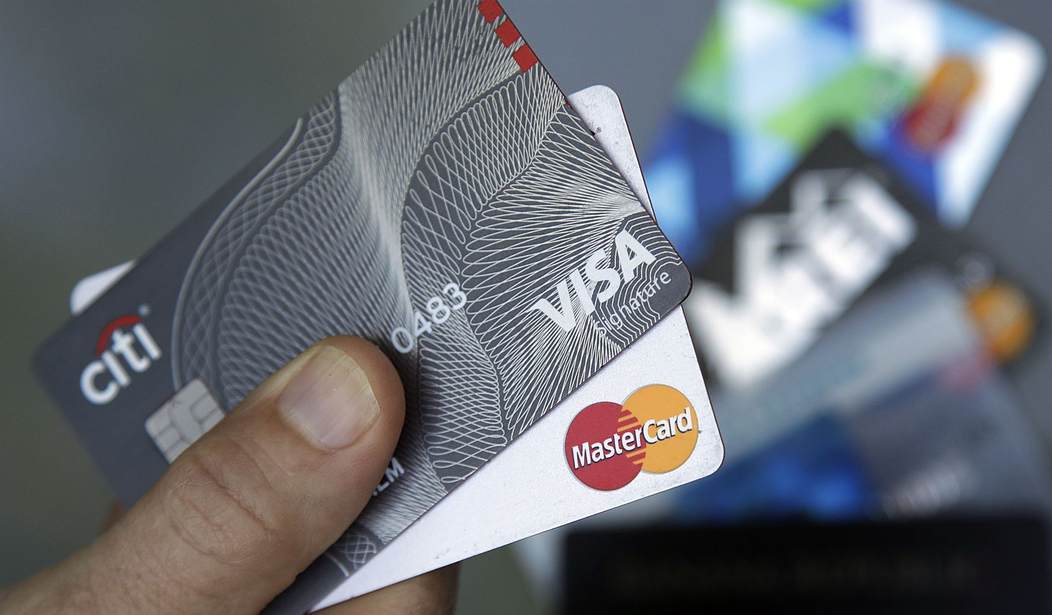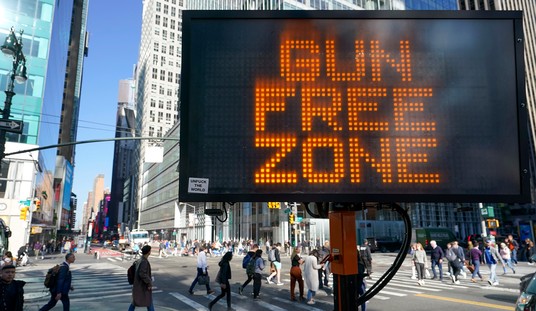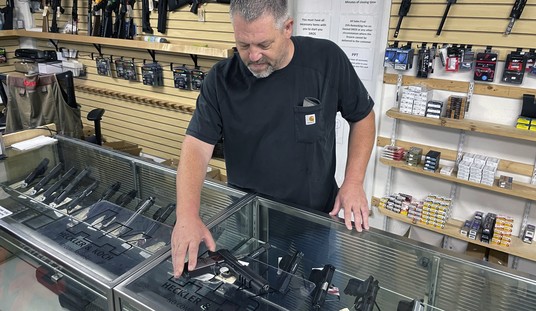The gun control lobby is taking the news that companies like Visa and Mastercard have hit the “pause” button on their rollout of new merchant category codes for gun stores about as well as you’d expect. That is to say, there’s a lot of frothing at the mouth and complaining that the companies are “caving to the gun lobby”, as well as dubious claims that these codes would actually be helpful at identifying potential violent criminals and preventing them from carrying out their crimes.
That last claim is something that companies like Visa and Mastercard have disputed all along; not because they’re spineless tools of the gun lobby, but because these merchant category codes aren’t designed or meant to identify a particular purchase, much less determine if its “suspicious” in nature. As Visa’s outgoing CEO Al Kelly told Time in January:
I’ve heard from everybody. I don’t think there’s a senator or member of the House or attorney general in the United States I haven’t heard from. I’m telling them that we will follow the law. Guns are allowed in the United States and we would fully expect that anybody who wants to buy a gun should be able to buy that that gun provided all the other checks are done. On top of that, we’re telling them that we don’t collect [that level of data] for consumers. So if [Visa’s Chief Communications Officer] K.C. Kavanagh goes into a gun store and buys three thermoses and a tent, and you go in and buy a rifle and five rounds of ammunition, all I know is you both went to the same gun store. I know what gun store, I know when you went, and I know how much money you spent. But I don’t know what you bought.
I don’t think the code was necessary. But it doesn’t matter; the code is in place. It’s now an international standard and we adopt international standards.
Apparently not, at least if states threaten to fine companies that do use the codes. That’s ostensibly the reason for Visa, Mastercard, Discover, and American Express all halting efforts to implement the MCCs, but Kelly and other industry executives had also been pretty clear in their statements that the codes aren’t the valuable public safety tool anti-gun activists have made them out to be. In the wake of the decision to halt work on implementing the codes, anti-gun activists are now all but blaming credit card companies for any and all future mass shootings.
“It is shameful to hear reports that credit card companies Visa and Mastercard have caved to the gun lobby’s transparent political ploys. If true, Visa and Mastercard are choosing political expediency over American lives. Make no mistake, Americans will continue to suffer and die as a result of this deadly decision. Having a dedicated process to flag troubling and suspicious firearms purchases, like they already do to detect other fraudulent purchases, is a common-sense strategy for companies to save lives and prevent the next mass shooting,” said Brady President Kris Brown. “We urge Visa and Mastercard to correct their course immediately. The choice they have now is clear: adopt this new tool at their disposal to prevent gun violence, or drag their feet while gun violence devastates our communities across the country. Every delay of action results in more lives needlessly taken.”
Note that “troubling” and “suspicious” are very different than “fraudulent.” A purchase made with a stolen credit card is easy enough to identify, especially if the cardholder flags the transaction for credit card companies. Who, on the other hand, defines “troubling” or “suspicious” transactions? For anti-gunners, it could be something as routine as making purchases at a gun shop several days in a row, or spending more than they think you should.
These reporting requirements were meant to highlight potential financial crimes, not to prevent violent crimes from ever taking place. Brown and other anti-gun activists make it sound like these merchant category codes are high-tech pre-crime tools, but the reality is far different.
I will say that there was one thing that surprised me in the anti-gunner’s collective statement of outrage: not one of them said anything about blue-states like California responding in kind to the red-state laws that supposedly led to the cold feet on the part of companies like Visa and Mastercard. Maybe they don’t want to tip their hands, but those efforts are almost certainly coming. Gavin Newsom loves to pick culture war fights, and if he’s going after Walgreens over abortion then it probably won’t be long before he demands credit card companies either implement these MCCs or face the wrath of lawmakers in Sacramento.









Join the conversation as a VIP Member